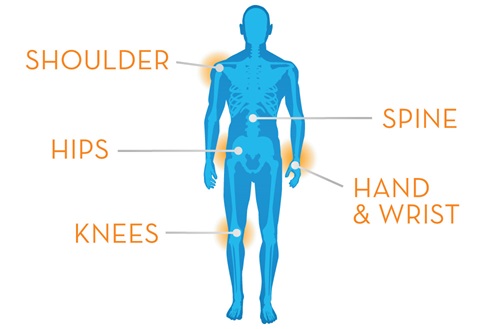Managing chronic orthopedic conditions like arthritis or degenerative disc disease requires a comprehensive approach that blends medical expertise, personalized treatment plans, and a focus on improving quality of life for patients. Orthopedic specialists play a crucial role in this management process, employing a variety of strategies tailored to each individual’s needs.
Diagnosis and Assessment: The journey begins with a thorough evaluation where the orthopedic specialist conducts a detailed medical history review and physical examination. Imaging studies such as X-rays, MRIs, or CT scans may be utilized to assess the extent of joint damage, disc degeneration, or structural abnormalities. This step is critical for accurately diagnosing the condition and determining its impact on the patient’s daily life.
Medication and Pain Management: Orthopedic specialists often prescribe medications to alleviate pain, reduce inflammation, and improve joint function. Nonsteroidal anti-inflammatory drugs (NSAIDs), corticosteroids, analgesics, and disease-modifying antirheumatic drugs (DMARDs) are commonly used depending on the specific condition and its severity. These medications help manage symptoms and slow down disease progression.
Physical Therapy and Rehabilitation: Physical therapy is a cornerstone of orthopedic care for chronic conditions. Therapists develop customized exercise programs to strengthen muscles, improve flexibility, and enhance joint stability. Techniques such as hydrotherapy, manual therapy, and modalities like ultrasound or electrical stimulation may also be incorporated to manage pain and improve mobility.
Lifestyle Modifications: Orthopedic specialists emphasize the importance of lifestyle changes to manage chronic orthopedic conditions effectively. This may include weight management to reduce stress on weight-bearing joints, ergonomic adjustments at home or work, and guidance on proper posture and body mechanics to prevent further damage.
Injections and Interventional Procedures: For patients with persistent pain or limited mobility, orthopedic specialists may recommend injections of corticosteroids or hyaluronic acid directly into affected joints to reduce inflammation and provide temporary relief. In more severe cases, minimally invasive procedures such as joint aspiration, nerve blocks, or surgical interventions like joint replacement or spinal fusion may be considered.
Collaborative Care and Patient Education: Effective management of chronic orthopedic conditions often involves a multidisciplinary approach. Orthopedic specialists collaborate closely with primary care physicians, rheumatologists, physical therapists, and pain management specialists to coordinate comprehensive care plans tailored to the patient’s needs. Patient education is also prioritized, empowering individuals with knowledge about their condition, treatment options, and strategies for self-management.
Long-term Monitoring and Support: Managing chronic orthopedic conditions is a lifelong journey. Orthopedic specialists provide ongoing monitoring to track disease progression, adjust treatment plans as needed, and address any new symptoms or complications that may arise. Regular follow-up visits allow for continuous evaluation of the treatment’s effectiveness and the patient’s overall well-being.
In essence, orthopedic specialists employ a combination of medical, rehabilitative, and interventional strategies to manage chronic orthopedic conditions like arthritis or degenerative disc disease. By focusing on symptom relief, functional improvement, and enhancing quality of life, these specialists play a pivotal role in helping patients maintain mobility and independence despite their condition’s challenges.






Comments